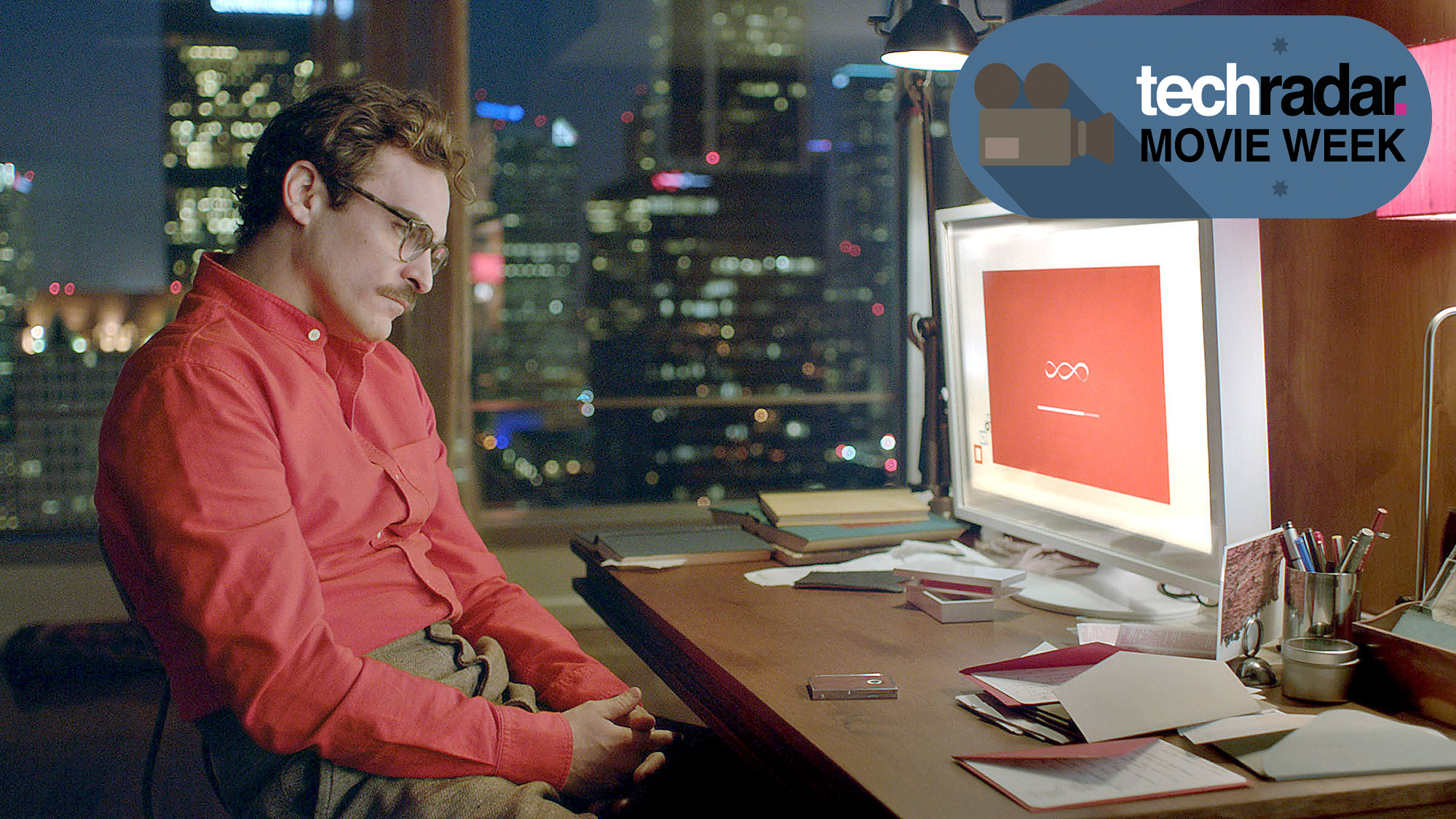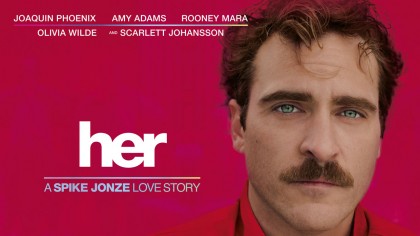Him and Her: Spike Jonze reveals why the OS of the future is all talk
From Siri to Samantha, Her sees an operating system finally finding its voice

This is an old feature that has been republished for TechRadar's Movie Week. The original piece was published in 2014.
With the words "OK, Google" inching closer to everyday use and Apple desperately looking to raise Siri beyond gimmick, it's clear that computing companies are trying to find their true voices when it comes to OS interaction.
Fiction it may be but if the movie Her is anything to go by, then the future of device communication will certainly be through speech – speech that moves way beyond simple commands and into full-blown conversation.
The film's plot, when said out loud, may raise eyebrows. Joaquin Phoenix plays Theodore, a lonely writer who is helped over a breakup by the arrival of a new operating system in his life, Samantha, voiced by Scarlett Johansson.
In a lesser director's hands, this is a film premise that would fall flat but under the guidance of Spike Jonze (Being John Malkovich, Where The Wild Things Are) it's elevated to something special.
Her's take on AI leans heavily on intelligence, while almost completely disregarding the artificial. It's a wonderfully warm movie that presents a future that's only a beat or two away from the modern day; a world that's awash with technology but the gadgets used are kept very discreet.
Phones are spoken to through hidden earpieces, with the devices themselves looking more like delicate cigarette holders than ever-increasing rectangles.
Sign up for breaking news, reviews, opinion, top tech deals, and more.
People, Theodore included, still sit at computers but everything is controlled by voice. Everyone is talking but for the most part it's operating systems that are being chatted to. And these systems chat back.
Technology outpacing people
"There used to be a whole support system and now we don't have it – now we have our iPhone."
TechRadar was lucky enough to sit down with Spike Jonze before the premiere of Her in the UK where he revealed that despite the plot's futuristic focus, the idea that the operating system in Her acts as a support network, is something that's steeped in history.
"The way I see it is that we have lived in civilisation for the last 10,000 years. We have been turned from hunters and gatherers into a cultural-based society and from that point on, from when we started agriculture, villages, building towns our lives have definitely got much faster paced," says Jonze.
"And in the last 10 years things have gotten exponentially faster paced."
With the growth of technology in the last decade, particularly our reliance on smartphones, it's clear that Jonze is sensitive to how technology is now key to all of our lives, for better or worse, but there is a worry that technology is outpacing the people that operate it.

"I can't imagine that our psychology in that time has kept up with this pace," explains Jonze. "That seems like something to think about, with finding ways to be kinder on ourselves, feel empathy for ourselves, help us deal with the situations that we put ourselves in.
"In history there was better support. You used to live in villages with your elders that you could talk to, or priests who were much more important, or the witchdoctor. Whoever it was there was a whole support system and now we don't have it – now we have our iPhone."
With such importance laid firmly on our gadgets, their access to the web and its seemingly infinite pool of knowledge, Jonze does believe that technology has the potential to burden us to the point of burn-out.
"I think about the way that the phone I carry is now part of me. How much of our life is through our phones, our computers, through our texts, through our emails. How much of our day is spent taking in information, receiving and replying to communication. It's so much," he says.
- 1
- 2
Current page: Spike Jonze on people and technology
Next Page Spike Jonze on how technology changes us
Marc Chacksfield is the Editor In Chief, Shortlist.com at DC Thomson. He started out life as a movie writer for numerous (now defunct) magazines and soon found himself online - editing a gaggle of gadget sites, including TechRadar, Digital Camera World and Tom's Guide UK. At Shortlist you'll find him mostly writing about movies and tech, so no change there then.